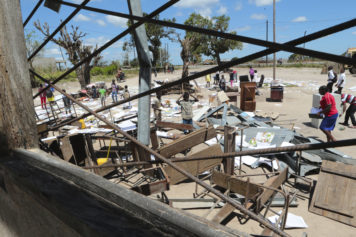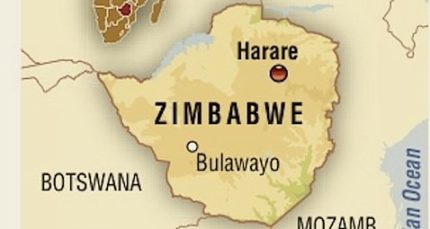Following a visit to assess the state of human rights in Zimbabwe, U.N Human Rights Commisioner Navi Pillay called for the suspension of Western sanctions against the nation’s current government. Currently, the imposed sanctions restrict President Robert Mugabe and those central to his regime by preventing travel and freezing assets. Pillay suggests that these sanctions have a greater impact on the nation’s poor, who face economic and social instability.
According to Pillay, the sanctions create a deterrent for foreign banks and investors that could provide aid to the unstable economy. She suggested a suspension of the sanctions until Zimbabwe’s next round of elections is completed, sometime within the next year. This also came with a request that Mugabe pass reforms to prevent the sort of violence seen in the country’s last elections in 2008. Politically charged killings and violent crimes against citizens surrounded those polls, which allowed Mugabe’s party to stay in power, as it has since 1980.
During the same year, Zimbabwe was forced to switch to American currency, after hyperinflation destroyed the nation’s currency. Before the Zimbabwe dollar was abandoned, bills ranging from 50 billion to 100 trillion were standard issue. The Reserve Bank of Zimbabwe was forced to allow the use of foreign bills in all domestic transactions in January 2009 to prevent an economic collapse, but this has created new issues for natives. A lack of new bills being circulated has led to a dearth of physical currency for people to exchange. Restaurants and businesses struggle to give customers change due to a lack of small bills. Some stores give out chocolate or fruit as change, since there are no U.S. coins to be used.
Mugabe’s regime has blamed the Western sanctions as the source of Zimbabwe’s economic turmoil, but detractors have claimed that the president is in fact responsible. Beginning in 2000, the government has seized thousands of commercial farms owned by whites. This caused a wave of unemployment and a large shift in the control of Zimbabwe’s then agricultural-based economy.
After the upheaval that occurred in 2008, the sanctions were tightened, but Pillay believes that a suspension would allow for greater internal reform. Officials from Zimbabwe supported Pillay’s statements, but maintained that the sanctions should be removed completely and “unconditionally.”


